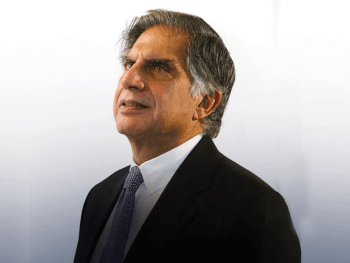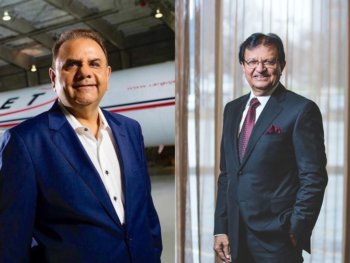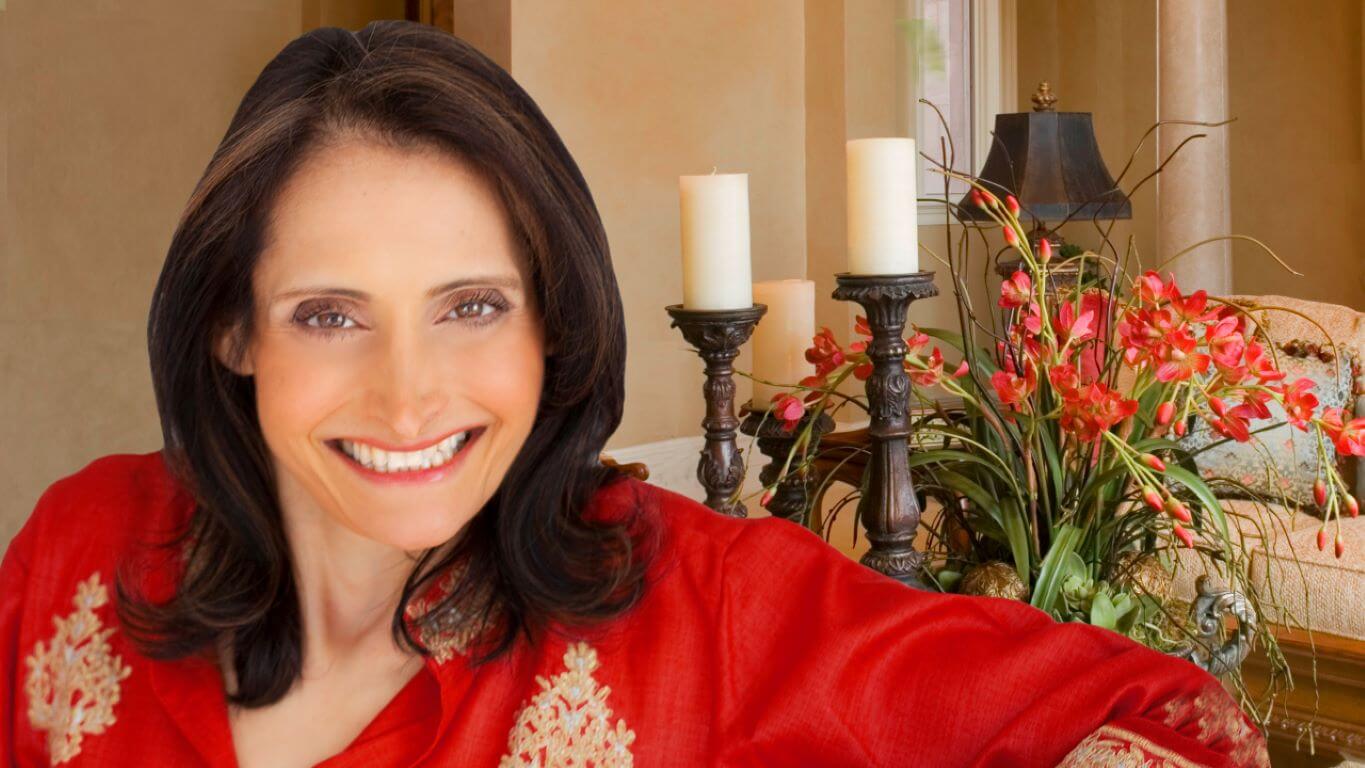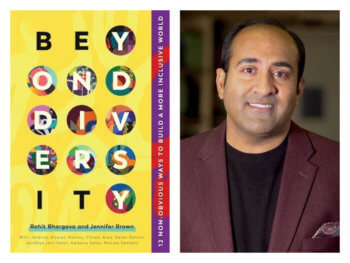
How Nandini Jolly, Founder & CEO of CryptoMill CyberSecurity Solutions Is Focused On Protecting Your Data
Business Jan 30, 2020
Nandini Jolly, founder & CEO of CryptoMill CyberSecurity Solutions shares her thoughts on learning the ropes of the cybersecurity world, the world of risk management and how spirituality plays a key role when it comes to keeping everything into perspective.
It’s easy to be intimidated by the word ‘cybersecurity’. For many who don’t have a background in computer science, the concept of encryption, programming code, complicated statistics can be enough to put someone off the idea altogether.
For Nandini Jolly, it all comes down to spirituality.
“To me, everything is spiritual,” she said. “Nothing is secular. And once you see the world with that perspective, you can do anything.”
Over the past decade, Jolly has paved her way into the cyber industry as founder & CEO of software firm CryptoMill CyberSecurity Solutions. In recent years, the company has grown from its fledgling status to one that services not only some of the biggest names on the commercial market — Seagate, HP, Motorola, Open Text — but also the Canadian government’s national defense department.
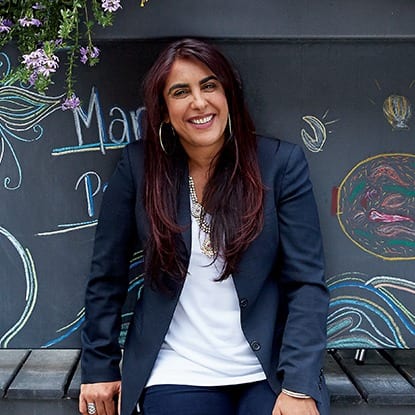
Recently the CIO Strategy Council named ‘Circles of Trust’ — the most recent brainchild of Jolly and her team — as the new standard for data security in Canada. “So that’s a big coup for us,” said Jolly.
However, when Jolly first started out at the company, she knew little-to-nothing about cybersecurity. Armed with a Masters in Finance degree from the London School of Business, she spent the 2000s working the trading desk at the Bank of America as vice president for risk management and then as a director at Deloitte. “I learned a lot about how to be a top performer and succeed in an environment that’s very high paced,” she said.
It was her background in risk management that first caught the eye of management at the CryptoMill, then a fledgling Toronto start-up. “Ultimately, everything in life is about risk,” she said. “Dating, foreign exchange … it’s the same idea of risk-taking and (figuring out) how to protect yourself.”
Being on the brink of being offered partner at Deloitte, Jolly almost turned down the opportunity at the start-up. It was her husband and biggest fan, Marc, who gave her that push out the door and encouraged her to try something new. “ He said, ‘are you kidding me, you’re totally out of the box’,” she reminisced, with a chuckle. “He encouraged me to give it a shot.”
The idea behind cybersecurity, i.e. the protection of computer systems, data and software from theft or damage, is far from new. Ever since the 1960s, organizations have been protecting their system with the use of password protection and two-step security. The first example of antivirus software came into play in the 1970s, when Ray Tomlinson, the inventor of email, designed a self-replicating program that left a trail wherever it went — the first computer worm. Then he designed a program that erased the worm and deleted it, i.e., the first antivirus.
As the internet became more and more publicly available in the 80s and 90s, people began to put their information online, making them vulnerable to hackers and crime entities who saw the trend as a way of stealing revenue.
The past decade, especially, saw a series of major data breaches, impacting the way we design and share our information. In 2013, former CIA employee Edward Snowden leaked classified national security data, to highlight how the government was allegedly ‘spying’ on the public.
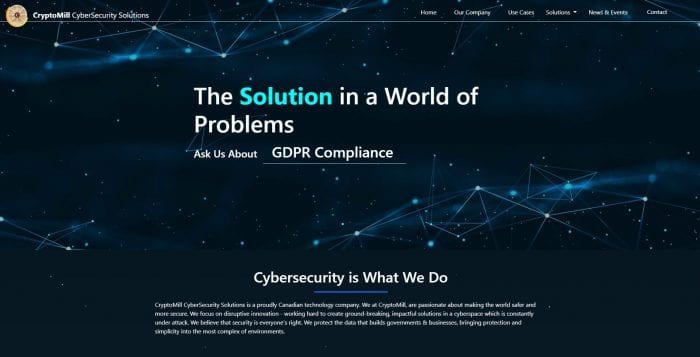
Yahoo reported two major data breaches, impacting millions of their users’ accounts. Both occurred in 2013 and 2014, affecting over a billion and 500 million Yahoo user accounts, in which names, addresses, passwords, telephone numbers were stolen. Both breaches are still considered to be the largest hacks discovered in the internet’s history.
Yet, despite the many media reports of massive data breaches, Jolly says its not uncommon for organizations to remain lax about their data security measures. “There are still organizations that think ‘it’s not going to happen to me’,” she said, likening it to the smoker’s dilemma in which smokers, despite knowing the risks of consuming tobacco, continue to smoke.
CryptoMill officially launched in 2013 with 10 employees. The early days were spent in “research and development” and Jolly would often spend long hours hiring staff, raising funds and cultivating clients for the start up. It helped that she had cultivated a reputation for herself in the business world, she said, and would often reach out to connections for help.
“Like most start ups, the team wore many hats,” she said. “We hustled, made a ton of calls and emails, researched, developed.”
On top of running her own shop, Jolly also faced a steep-learning curve in the software industry, often relying on her team of engineers to coach her on the technical know-how that comes with running the business.
“I call them my Big Bang Theory team,” she says proudly. She describes her team as a “highly eclectic family”, emphasizing that any and all achievements belong to the team as a whole, rather than an individual.
“I know I’m successful when I’m in a group meeting with a big client and I say something highly technical and my engineers fall out of their chair,” she said, with a chuckle. “It’s kudos to them.”

The company’s first big breakthrough came in the form of SEAHawk. “It was our first security solution to protect laptops and desktops,” she said. The encryption software works by encrypting information no matter where it’s stored on, ensuring that it can only be accessed on client company’s own computers. If a hacker or disgruntled employee were to steal the data, and attempt to view it outside office doors, all they would see is hopelessly garbled data.
“SEAHawk protects information from being lost or stolen using encryption, it can be applied to your computers’ hard disk as well as removable media such as USB disks,” she said. “It’s part of an endpoint security solution.”
Thanks to SEAHawk, the company won a partnership with Seagate – one of the world’s largest makers of computer drives — in 2007, marking a major step towards carving their name into the tech plaque.
However, their most recent solution, Circles of Trust, has transformed them into a global leader on cybersecurity.
“Have you watched the movie Meet the Fockers?” Nandini asked. She describes a scene in which Jack Byrnes — played by Robert De Niro — tells Greg, Jack’s future son-in-law, that he is “now on the inside of the Byrne’s circle of trust.”
“See if I can’t trust you Greg, then I have no choice but to put you right back outside the circle,” Jack tell Greg in a separate scene — inadvertently explaining the technology behind the company’s latest brainchild.

“It’s a data-first, data-centric approach,” she said. Within Circles of Trust, the encryption travels with the data, making it unreadable to anyone except those who are allowed membership to access it. The membership, warns Nandini, isn’t permanent either; rather, owners of the data have the ability to rescind permission, meaning that a person who could once access the data can no longer access it — even if they tried to download it on a separate USB, use a different device, take a screenshot etc.
Is there anything else like it in Canada? “Not in the world,” said Jolly. While snippets akin to the technology have been developed by Microsoft and other companies, Circles of Trust remains unique in that it shuns the use of a master key, ensures a seamless, transparent process for data owners and maintains cryptographic boundaries — trust circles — to control access. “When you put these three together, we stand apart from the global offering,” she said.
Circles of Trust has put Jolly and her team — now, under 30 employees — on the map, bringing them in contact not only with some of top organizations around the world, but also with the Department of National Defence of Canada. “It’s getting its due attention now, in the national sense,” she said. “It’s engaged with the Navy and we’ve got amazing support from the overall defense group.”
And the inspiration behind the idea? Jolly’s sense of spirituality. “If God can be anywhere, why can’t security be everywhere,” she asked.
The hope, Jolly says is for the software to become a global standard among corporations. “My hope is that, when it comes to our own technology, that circle of trust will become a verb,” she said. “In a global way, where everyone will say, did you circle this? That’s my vision.”
Main Image Photo Credit: CryptoMill CyberSecurity Solutions
Devika Desai
Author
Devika (@DevikaDesai1) has a Masters in Journalism from Ryerson University. She's currently a web producer for the National Post. She has also interned at MidDay, a Mumbai-based tabloid. In her free time, she loves to read, work out once every blue moon and ask strangers if she can pet their dogs.





























































